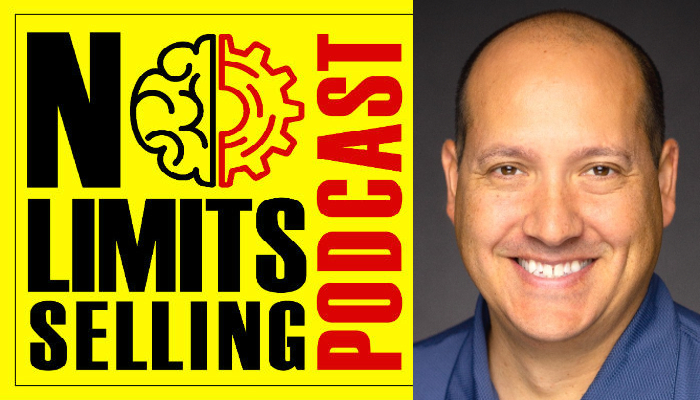How To Use Strategic Vision to Create Corporate Growth
On Episode 167 of The No Limits Selling Podcast, we have Paul Katzoff. Paul (@PaulKatzoff) is the CEO of WhiteCanyon Software, a data erasure software firm in Salt Lake City, Utah. WhiteCanyon Software has been providing data security software since 1998. And all Sales, Support, and Development are performed at their Utah headquarters. Paul loves surfing, spaghetti, and Whittaker's Peanut Slabs.

Contact Paul:
[EDITOR’S NOTE: This podcast is sponsored by No Limits Selling. It is a fun, fast-paced podcast that delivers hard-fought business advice that you can implement today to improve your sales and performance]
Interested In Our Real Estate Coaching Services? Explore Our Website: Link
Feeling Not Well Today? You Can Use Our Mindset Boosters App To amp Up Your Mood: Link
Find us on Social Media:
LinkedIn | Facebook community | Instagram
Like what do you listen to? Subscribe to our podcast!
Ready to become fearless? We can help you become fearless in 60 days so you accomplish more in your career Schedule A 15 min Call with Umar
Summary
Introduction and About WhiteCanyon Software
The document begins with an introduction of Paul Katzoff, the CEO of WhiteCanyon Software. WhiteCanyon Software is a leading provider of security software employing advanced technology to prevent identity theft. The company's flagship product, WipeDrive, is the world leader in disk wipe software.
Paul's Journey
Paul shares his journey, starting from his early days in the tech industry to becoming the CEO of WhiteCanyon Software. He started as a tech support agent for $12 an hour, 40 hours a week, and after nine or ten months, he moved up to Tech Support Manager. He talks about the challenges he faced and how he overcame them using strategic vision to create corporate growth.
The Power of Positive Thinking
Paul emphasizes the importance of positive thinking. He believes that a positive mindset can help overcome challenges and achieve goals. He discusses the importance of a strategic vision to create corporate growth and long-term value, and how these two aspects tie together. He believes that the purpose of a CEO is to drive the long-term value of the company, and the strategic vision is the roadmap to get there.
Vision and Goals
Paul discusses his vision and goals for WhiteCanyon Software. He aims to make the company a global leader in data security. He also talks about the importance of culture in achieving these goals, as the employees are the ones who help the corporation get there.
Sales Team and HR
Paul talks about his sales team and the role of the sales director. He discusses the importance of mentorship and training to create corporate growth for sales reps to realize their potential. He also discusses the role of HR in the company, emphasizing that HR should be a separate entity from the CEO and should be seen as a support system for the employees.
Conclusion
The podcast featuring Paul Katzoff, CEO of WhiteCanyon Software, provides a comprehensive insight into his leadership style, the importance of positive thinking, and the strategic vision required to drive a company forward. Katzoff shares his journey from starting as a tech support agent to becoming the CEO, emphasizing the role of perseverance and adaptability. He underscores the significance of a strong sales team and the crucial role of HR as a separate entity that supports employees.
Katzoff's vision for WhiteCanyon Software is to establish it as a global leader in data security, and he believes in the power of a positive mindset and a clear strategic vision to create corporate growth, overcome challenges and achieve long-term goals. His advice to aspiring leaders and entrepreneurs is to stay positive, be persistent, and never lose sight of their dreams.
Questions & Answers
Who is Paul Katzoff?
What is WhiteCanyon Software known for?
What is Paul Katzoff's leadership style?
How does WhiteCanyon Software support its sales team?
What is the role of HR at WhiteCanyon Software?
What is Paul Katzoff's vision for WhiteCanyon Software?
What advice does Paul Katzoff have for aspiring leaders and entrepreneurs?
Don’t miss this opportunity to transform your real estate career with one-on-one coaching. As an experienced real estate coach, I, Umar Hameed, am dedicated to helping you unlock your full potential and achieve your real estate goals. To learn more about who am I and my clients ↓
If you’re ready to take the next step, book an appointment with me today and begin your journey toward success in the real estate industry.
